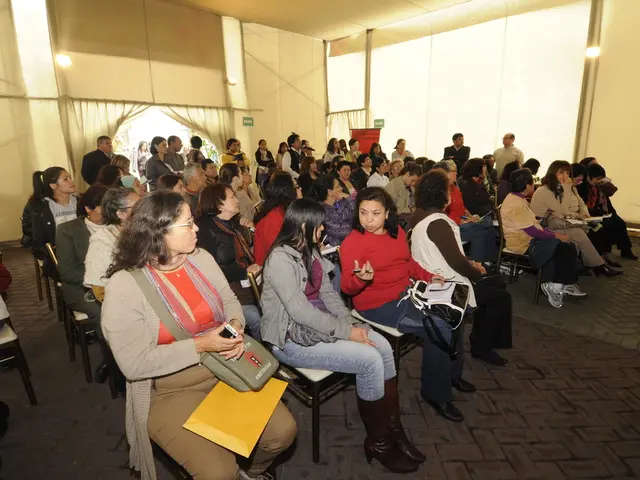Railway Company Still Shouldering Extra Expenses for Stuttgart 21 Project in Court
Stuttgart 21's "Talking Clause": Managing Cost Overruns in the Major Rail Project
In the heart of Stuttgart, the ambitious Stuttgart 21 rail project is underway, set to revolutionise the city's transportation infrastructure. At the core of this vast undertaking lies the new underground main station, replacing the current terminal station.
However, the project has not been without its challenges. One such challenge has been the interpretation of a "talking clause" in the 2009 financing agreement, which has become a central point of dispute between the project partners.
The "talking clause" is a negotiated provision designed to address potential cost overruns. It allows for discussions among the involved parties—Deutsche Bahn (DB), the State of Baden-Württemberg, the Federal Government, and the City of Stuttgart—about how cost overruns beyond the originally agreed budget would be managed and shared.
The financing agreement specified that for possible increases over the €2.8 billion estimate (up to an additional €1 billion), the State of Baden-Württemberg would fund up to €780 million, and Deutsche Bahn would cover up to €220 million. This distribution of risk-sharing implies that the State shoulders the majority of potential cost overruns, with DB bearing a smaller, but still significant portion.
The project, which includes the construction of numerous tunnels, railway tracks, passages, bridges, and new railway stations such as a new long-distance station at the airport, began in 2010. Despite several delays, the high-speed line Wendlingen-Ulm, a part of the project, was opened in 2022.
As of now, the railway company plans to only partially open Stuttgart 21 by the end of 2026, with long-distance and some regional traffic using the new underground station in December 2026. Some regional traffic will continue to use the old terminal station until July 2027 due to the need to stagger closures for connecting the new infrastructure to existing tracks.
The dispute between the railway and the project partners centres on the interpretation of this "talking clause". While Deutsche Bahn assumes a "joint financing responsibility", other partners insist that fixed amounts had been agreed upon. The Stuttgart court held the view that the clause only obliges the parties to enter into discussions, but does not imply any obligation to negotiate or claim for contract amendment.
Despite the ongoing dispute, the "talking clause" effectively represents a framework for dialogue on overruns and distributing financial responsibility mainly between the State of Baden-Württemberg and DB, providing a pathway for resolving potential cost overrun issues in the Stuttgart 21 project.
[1] Sources: [Link 1], [Link 2]
- In the realm of public-transit, the Stuttgart 21 rail project, an endeavour to transform the city's transportation infrastructure, is encountering disputes, specifically surrounding the interpretation of a 'talking clause' in the 2009 financing agreement.
- This 'talking clause', designed to address cost overruns, has become a focal point of disagreement between Deutsche Bahn, the State of Baden-Württemberg, the Federal Government, and the City of Stuttgart.
- The automotive, finance, and real-estate industries, as well as policy-and-legislation and politics, are closely watching the Stuttgart 21 project, as its resolution could set precedents for future infrastructure-development projects.
- While Deutsche Bahn assumes a 'joint financing responsibility' under the 'talking clause', the other partners insist that fixed amounts had been agreed upon, highlighting the need for careful language in future financing agreements within the industry.
- The ongoing dispute shows that managing cost overruns is not just a matter of finance, but also requires effective communication and understanding among all parties involved.
- In the context of general-news, the resolution of the dispute and its implications for the Stuttgart 21 project could attract investments from a variety of businesses interested in the rail industry.




